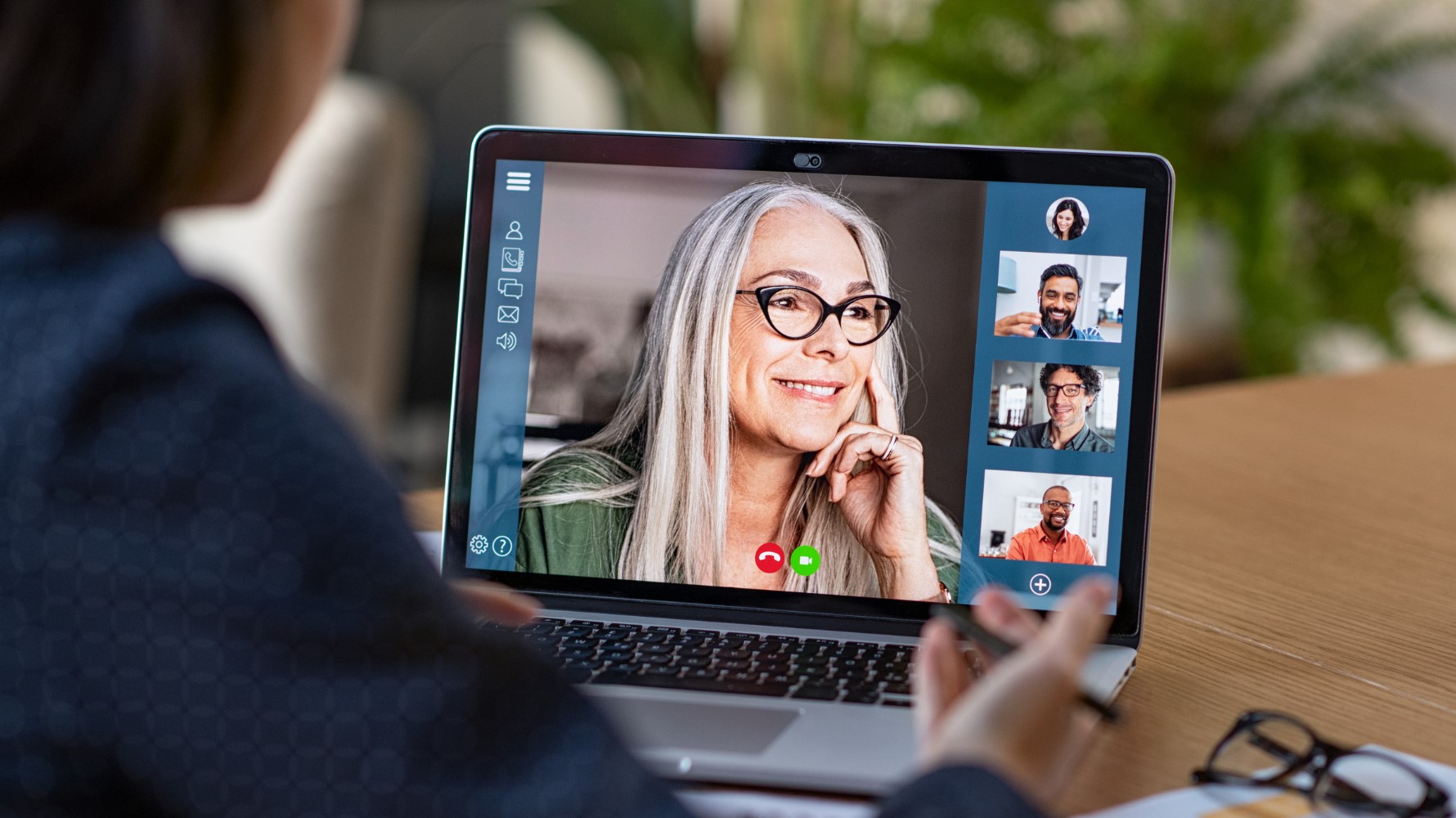Wayne State researchers help implement, measure the impact of virtual communication for people living with serious mental illness

The pandemic has caused widespread collateral damage, from economic fallout to mass closures of public institutions, and a significant casualty has been mental health. As stay-at-home orders took effect, therapists, counselors, and rehabilitation centers were forced to close their doors and take their services online, when possible.
Clubhouses, psychosocial rehabilitation programs that help support people living with serious mental illness (SMI) by fostering an environment that promotes recovery and enables access to employment and learning opportunities, were no exception. Most of the 300 clubhouses worldwide, which act primarily as physical spaces where members can glean mutual support, closed, and directors were left scrambling to stay connected with clients. Many have yet to reopen.
Mental illnesses that primarily fall under the SMI category include schizophrenia-spectrum disorders, bipolar disorder, and major depressive disorder.
"The prevalence of SMI and morbidity from such illnesses in the U.S. is striking," said Amber Michon, a doctoral student in counseling psychology in the Wayne State University College of Education who studies the rehabilitation of people living with SMI. "Rates of SMI for adults range from 4 percent to 6 percent, affecting more than 11 million adults. Furthermore, SMI is frequently under- or -misdiagnosed or undertreated, and many people with SMI receive no treatment at all."
For those that do, clubhouses can quite literally be lifelines.
When the coronavirus (COVID-19) outbreak hit Europe, Fountain House in New York City, N.Y., enlisted the help of American and European scholars, including Francesca Pernice, Ph.D., an associate professor of educational psychology and her research team at Wayne State of which Michon is a member, who specialize in the study of recovery communities to recreate the clubhouse experience virtually. The result: Virtual Clubhouse, a domain that combats social isolation by linking consumers with clubhouse directors and educators, as well as with each other. The community utilizes Facebook as a communal meeting space for members to connect, Slack as a way for members and staff to chat anytime 24/7 in topic-specific channels, and Zoom as a gathering space for check-ins and dialogue sessions.
Measuring the impact
To gauge the impact of Virtual Clubhouse, the research team at Wayne State partnered with Michigan State University, Clubhouse International, Fountain House, and Clubhouse Europe and created two surveys, one for clubhouse directors and one for clubhouse members, that were disseminated internationally.
As of May 18, 2020, the team had 141 completed director surveys and over 4000 completed member surveys.
Member surveys addressed questions relating to living circumstances, clubhouse engagement, medical conditions, and how they are coping during the crisis.
85 percent of members surveyed reported using contact with clubhouse staff as an effective coping strategy. 55 percent reported they are in contact with other members for the same purpose. 20 percent reported that they avoided a mental health crisis due to clubhouse intervention. 49 percent reported a barrier to technology use, whether lack of equipment, cost of internet, or lack of knowledge on how to use the platforms, while 16 percent reported clubhouses helped remove those barriers by shouldering costs and providing instruction.
Director surveys addressed COVID-19-related illnesses or losses, staffing and funding changes, technological utility and advancement, and how they are engaging with members since the closures. In spite of these challenges, the overall feedback has been positive. Directors reported that clubhouses continue to receive requests and gains for new memberships and that members have answered positively to the communication measures put into place since the closures-a testament that the Virtual Clubhouse seems to be working.
Planning for the new normal
While virtual interfaces can't replicate all the health benefits of human-to-human contact, the preliminary data suggests that the clubhouses continue to function and make a positive impact on their communities, Michon said.
Data collection is on-going. Director surveys are sent out monthly, while member surveys are sent out weekly until all clubhouses are physically able to reopen.
"Once we have repeated measures of data, we plan to determine how virtual clubhouses have been used over time, particularly during this pandemic, and hypothesize that greater engagement with virtual clubhouses will predict higher ratings of well-being from members and less hospitalizations," Michon said. "If our hypotheses are supported, implications may indicate that virtual clubhouses are an effective form of intervention for SMI."
Like so many organizations right now, clubhouses are realizing the advantages of virtual communication. Michon said the long-term hope is that post-crisis, clubhouses may continue offering virtual resources in addition to physical spaces, increasing patient engagement and successful recovery outcomes.
The Wayne State research team includes:
Learn more about the educational psychology program at Wayne State or explore the university's Ph.D. programs.
By Kristy Case, web editor/writer, Wayne State University Graduate School